
Find Help
More Items From Ergsy search
-
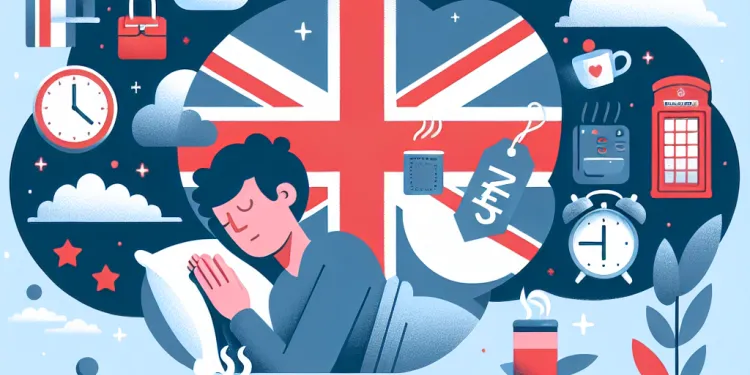
What are common symptoms of sleep apnea?
Relevance: 100%
-
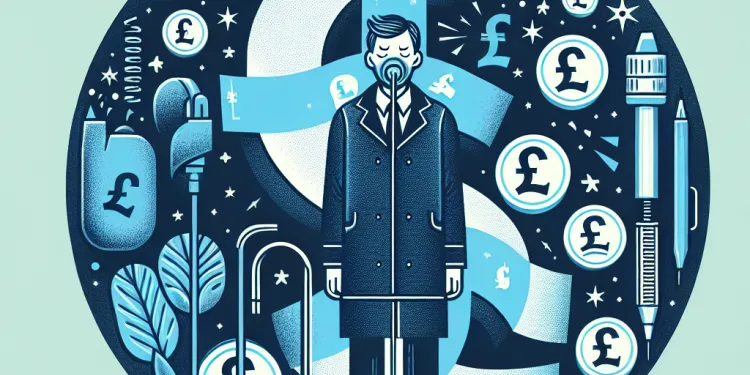
What is sleep apnoea?
Relevance: 92%
-

What is sleep apnea?
Relevance: 91%
-
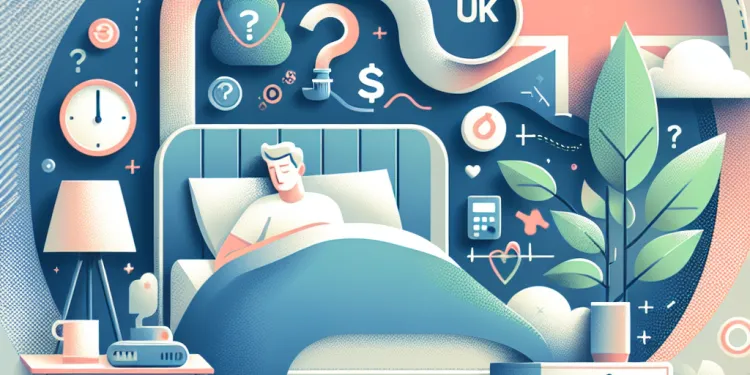
How common is sleep apnea?
Relevance: 87%
-
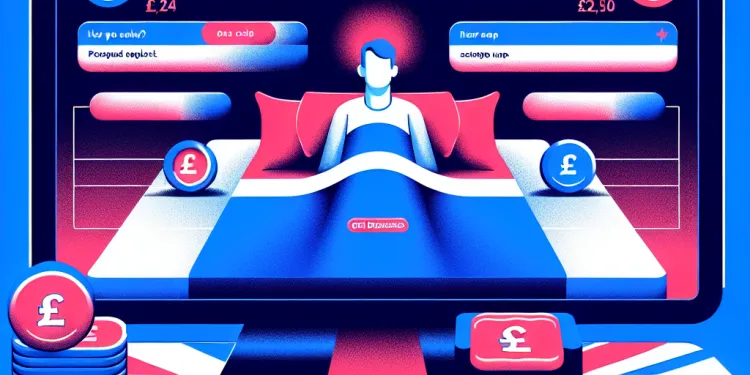
How is sleep apnea diagnosed?
Relevance: 87%
-
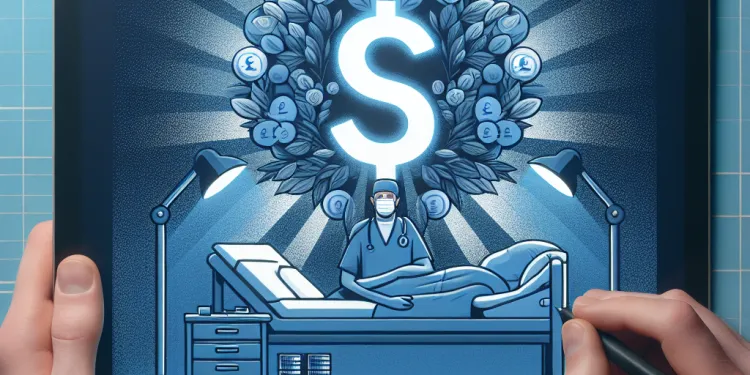
Can sleep apnea be cured?
Relevance: 87%
-

What are the main types of sleep apnea?
Relevance: 86%
-
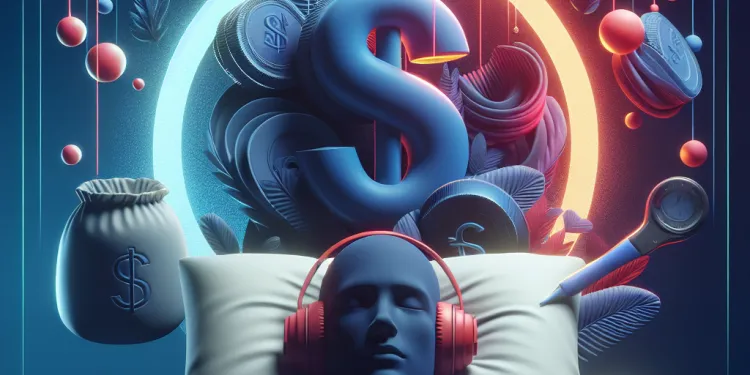
Why is sleep apnea dangerous?
Relevance: 84%
-
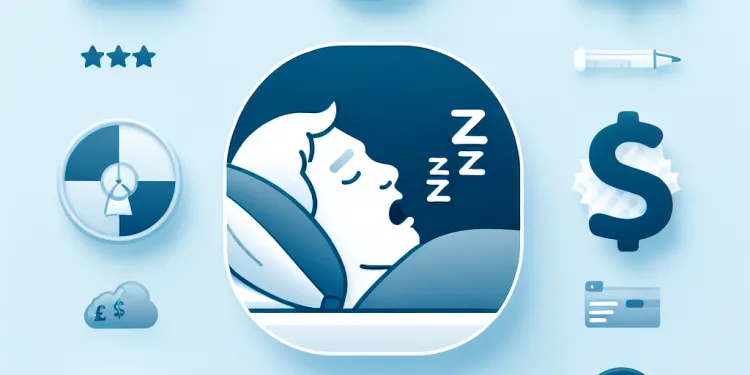
Is snoring always a sign of sleep apnea?
Relevance: 84%
-
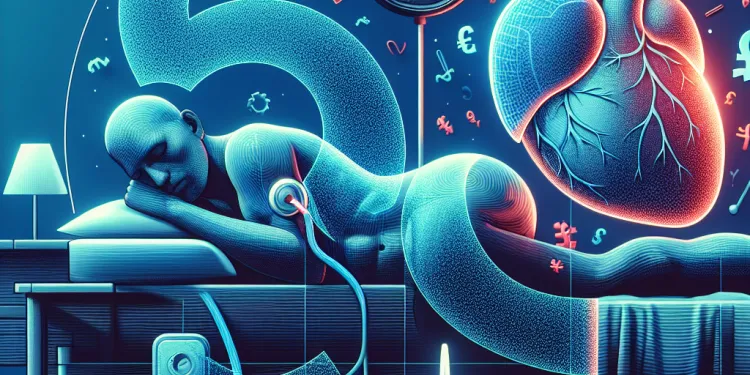
What is complex sleep apnea syndrome?
Relevance: 84%
-

What is complex sleep apnea syndrome?
Relevance: 84%
-
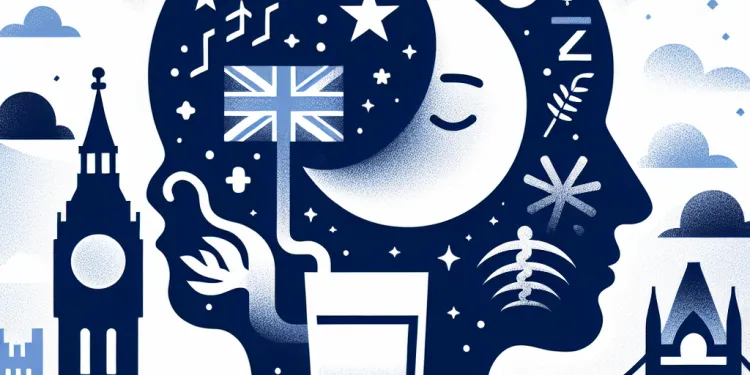
Can alcohol worsen sleep apnea?
Relevance: 84%
-
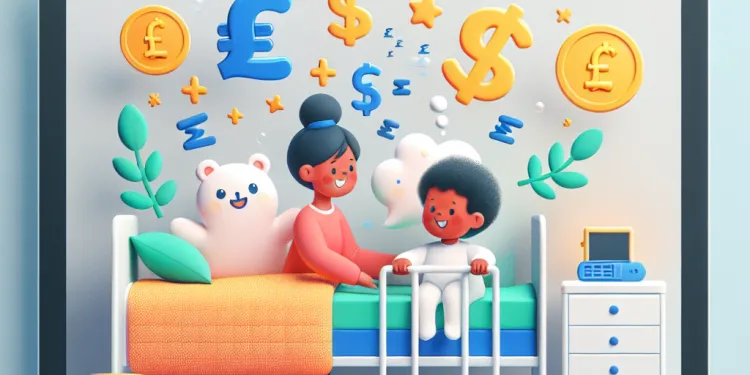
Can children have sleep apnea?
Relevance: 83%
-
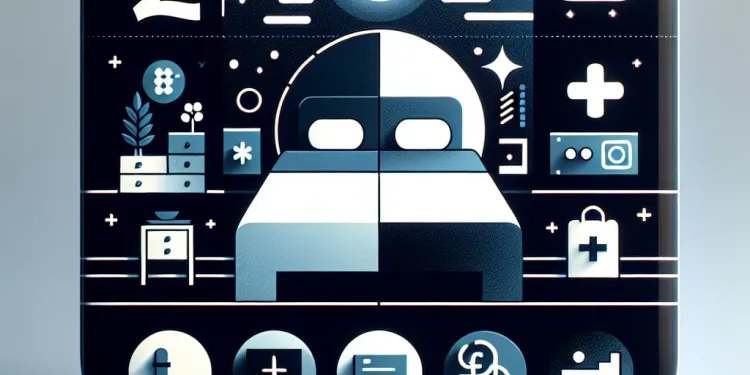
What treatments are available for sleep apnea?
Relevance: 83%
-
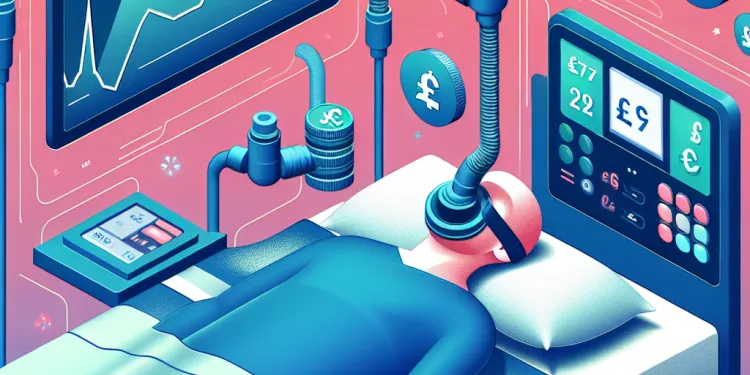
Is CPAP the only treatment for sleep apnea?
Relevance: 83%
-

Does sleep apnea occur only in adults?
Relevance: 82%
-

What should I do if I suspect I have sleep apnea?
Relevance: 81%
-

What causes obstructive sleep apnea?
Relevance: 81%
-
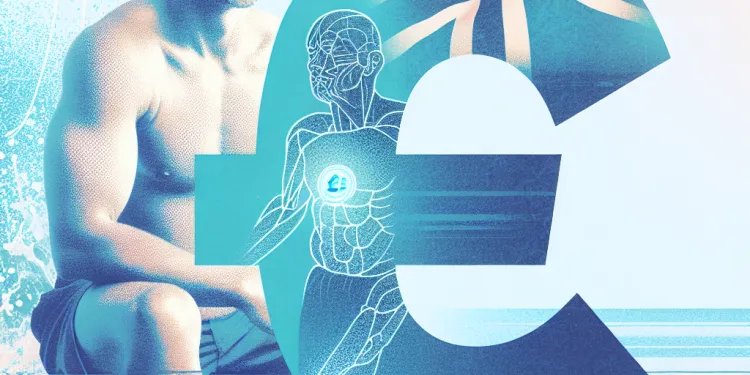
Can weight loss improve sleep apnea?
Relevance: 81%
-
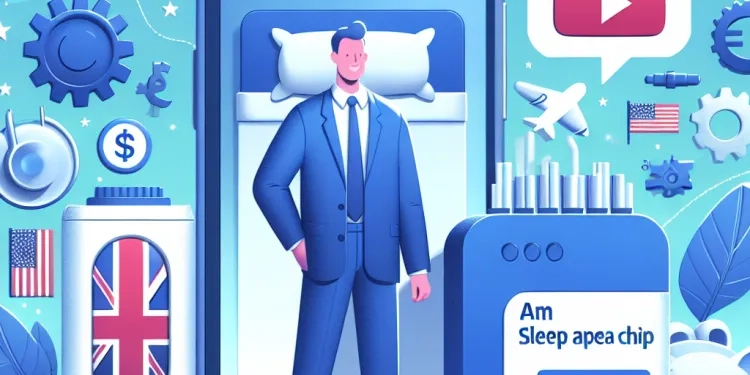
Am I eligible to try the new sleep apnea chip?
Relevance: 79%
-
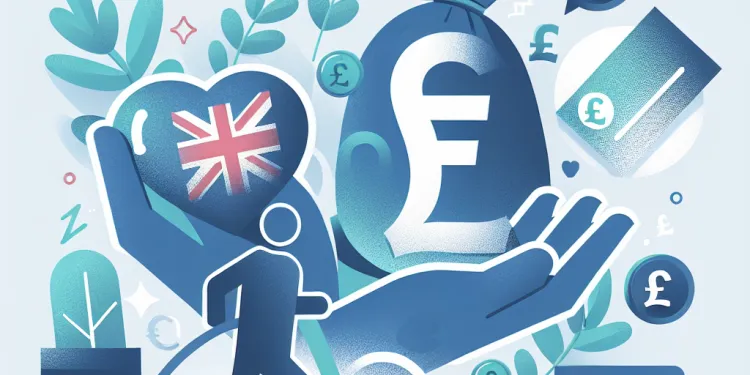
What are risk factors for developing sleep apnea?
Relevance: 78%
-

What lifestyle changes can help manage sleep apnea?
Relevance: 77%
-

How does the new Sleep Apnea Chip work?
Relevance: 73%
-
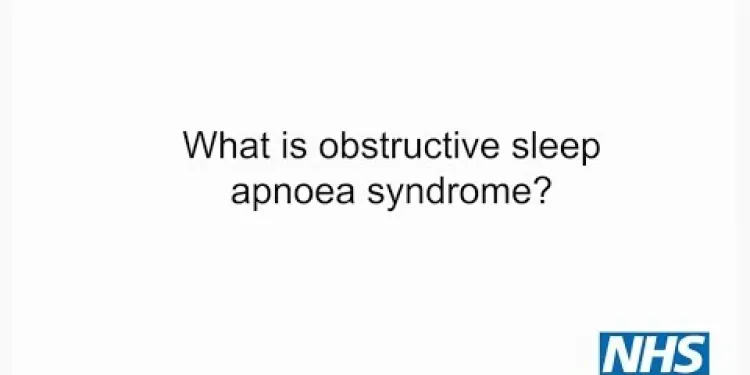
Introduction to obstructive sleep apnoea
Relevance: 64%
-
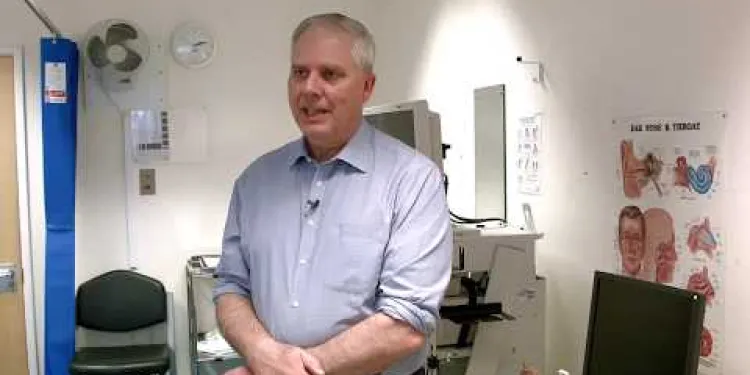
Evidence-Based Interventions: snoring surgery in the absence of Obstructive Sleep Apnoea (OSA)
Relevance: 56%
-

How does sleep quality relate to menopause symptoms?
Relevance: 52%
-
What is sleep apnoea?
Relevance: 43%
-

How does central sleep apnea differ from obstructive sleep apnea?
Relevance: 40%
-
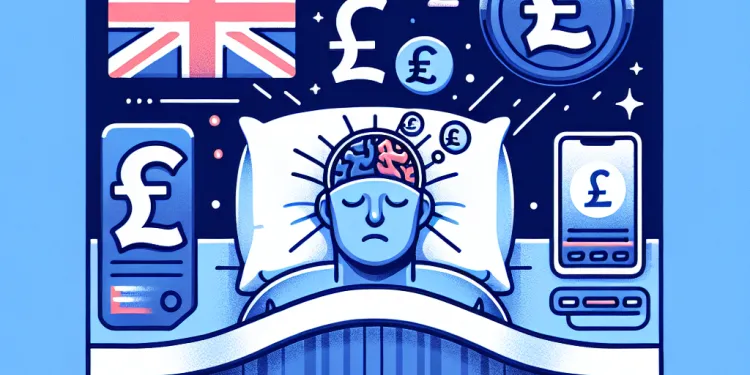
Is it safe to sleep after a concussion?
Relevance: 37%
-
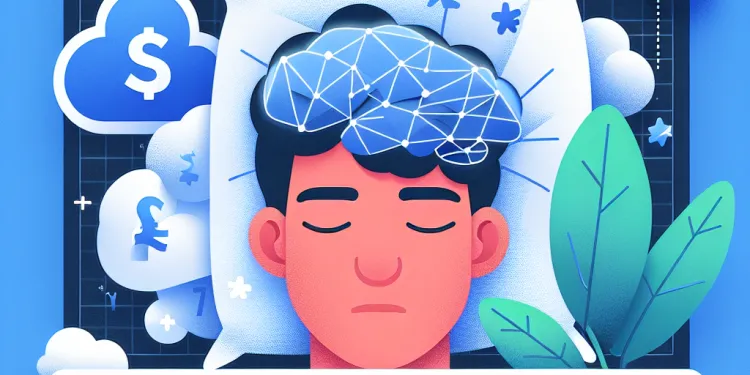
Is it safe to sleep after a concussion?
Relevance: 37%
-
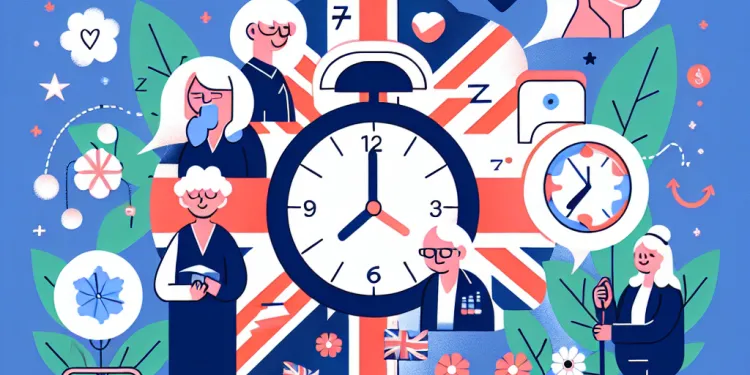
The Importance of Sleep for All Ages
Relevance: 36%
-
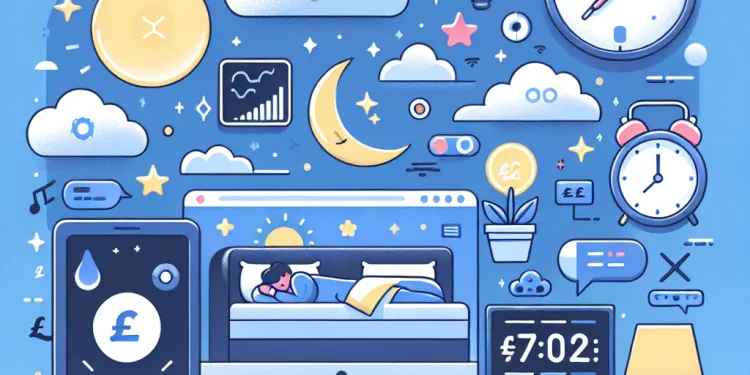
Does screen time affect both sleep onset and sleep maintenance?
Relevance: 33%
-
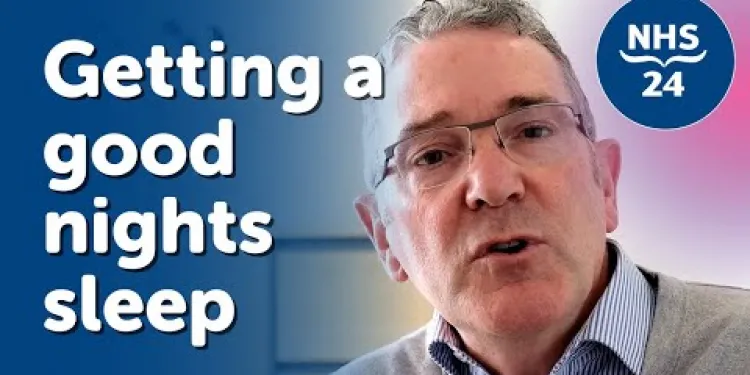
Top Tips to Help You Get a Good Nights Sleep
Relevance: 33%
-
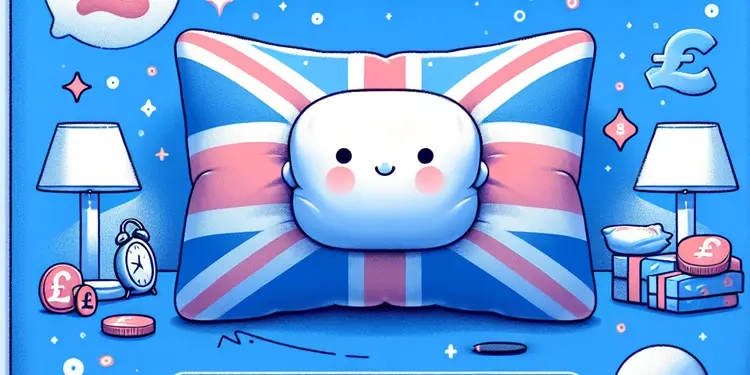
Are baby sleep pillows safe?
Relevance: 32%
-
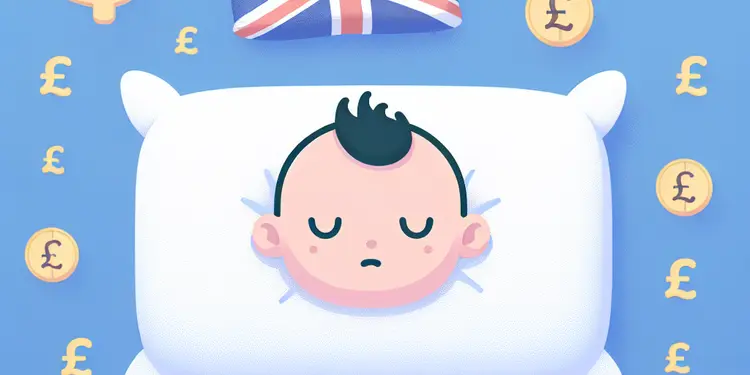
Can baby sleep pillows help with reflux issues?
Relevance: 32%
-

What are the symptoms of postnatal depression?
Relevance: 32%
-
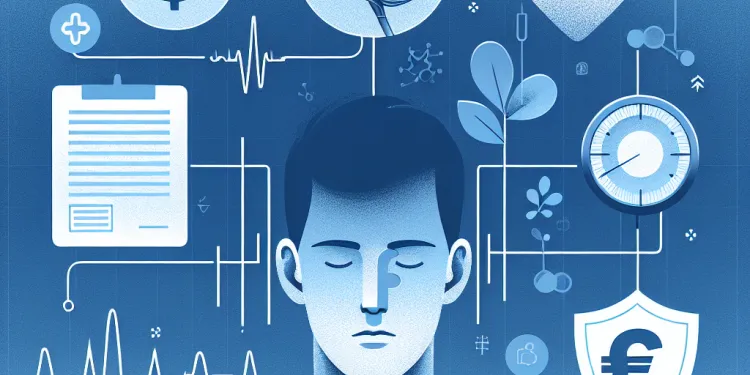
What are common symptoms of a concussion?
Relevance: 32%
-

What are the symptoms of SAD?
Relevance: 31%
-

Is it okay to use a baby sleep positioner?
Relevance: 31%
-
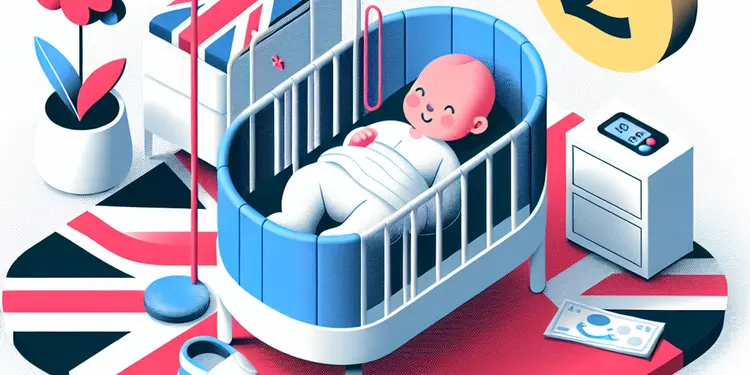
What is the safest sleep environment for an infant?
Relevance: 31%
Common Symptoms of Sleep Apnea
Sleep apnea is a prevalent sleep disorder characterised by repeated interruptions in breathing during sleep. These interruptions, called apneas, can lead to poor sleep quality and other health complications. Recognising the symptoms is crucial as it aids in early diagnosis and management of the condition. Below are some common symptoms associated with sleep apnea.
Loud Snoring
One of the most noticeable symptoms of sleep apnea is loud and persistent snoring. It occurs due to the vibration of relaxed tissues in the throat as air struggles to pass through a partially blocked airway. While not everyone who snores has sleep apnea, loud snoring that is more prominent and involves gasping or choking sounds is a strong indicator.
Gasping or Choking During Sleep
Individuals with sleep apnea may experience episodes of gasping, choking, or snorting during sleep. These episodes often result from the body's reflexive response to restore breathing after an apnea event. People may be unaware of these occurrences but may report waking suddenly with a feeling of breathlessness.
Daytime Sleepiness
Due to repeated disturbances in their sleep cycle, people with sleep apnea often experience excessive daytime sleepiness. They may find it challenging to stay awake during the day, leading to a higher risk of accidents and impaired concentration and productivity at work or while driving.
Mood Changes and Irritability
Sleep apnea can affect mood, leading to irritability, mood swings, and even depression. The fragmented sleep pattern and lack of restorative sleep can affect mental and emotional well-being, causing changes in temperament and increased stress levels.
Morning Headaches
Many individuals with sleep apnea experience headaches upon waking. These headaches are typically dull and may result from elevated carbon dioxide levels in the blood due to poor breathing during sleep. The headaches are often short-lived, dissipating within a few hours of waking.
Difficulty Concentrating
Cognitive impairment is another symptom associated with sleep apnea. Affected individuals may struggle with memory problems, difficulty concentrating, and a lack of mental clarity. This is primarily due to the disruption of the brain's rest and recovery processes during sleep.
Frequent Nighttime Urination
Nocturia, or frequent urination during the night, is another symptom linked with sleep apnea. The hormone that regulates urine production may be affected by poor sleep, leading individuals to wake up multiple times throughout the night to urinate.
Conclusion
Recognising these symptoms is important for those who might be experiencing sleep apnea. If sleep apnea is suspected, a visit to a healthcare professional is recommended to obtain an accurate diagnosis and appropriate treatment. Addressing sleep apnea can significantly improve quality of life and help prevent associated health risks.
Common Symptoms of Sleep Apnea
Sleep apnea is a problem where breathing stops and starts during sleep. It can make you sleep poorly and cause health problems. Knowing the signs can help find and treat it early. Here are some common signs of sleep apnea.
Loud Snoring
Loud snoring is a big sign of sleep apnea. It happens when the throat vibrates because air cannot move easily. Not all snoring means sleep apnea, but snoring with choking or gasping sounds might be a sign.
Gasping or Choking During Sleep
People with sleep apnea might gasp or choke while asleep. This happens when the body tries to start breathing again. They might not know it is happening, but they could wake up feeling out of breath.
Daytime Sleepiness
Since sleep apnea interrupts sleep, people can feel very sleepy during the day. This makes it hard to stay awake and can cause accidents or trouble focusing, like at work or when driving.
Mood Changes and Irritability
Sleep apnea can change how you feel, making you grumpy or sad. Poor sleep affects your mood and increases stress.
Morning Headaches
People with sleep apnea often wake up with a headache. These headaches are dull and usually go away after a few hours.
Difficulty Concentrating
Sleep apnea can make it hard to remember things and focus. Poor sleep does not let the brain rest properly, affecting concentration.
Frequent Nighttime Urination
People with sleep apnea may wake up many times at night to urinate. Sleep apnea affects the hormone that controls urine, causing this symptom.
Conclusion
Knowing these signs is important to find sleep apnea early. If you think you have sleep apnea, talk to a doctor. Treatment can make life better and stop other health problems from happening.
Frequently Asked Questions
What are common symptoms of sleep apnea?
Common symptoms of sleep apnea include loud snoring, episodes of breathing pauses during sleep, gasping for air during sleep, and morning headaches.
Can sleep apnea cause daytime sleepiness?
Yes, sleep apnea often causes excessive daytime sleepiness due to the disrupted sleep patterns.
Is snoring a symptom of sleep apnea?
Loud and chronic snoring is one of the most common symptoms associated with sleep apnea.
How does sleep apnea affect breathing during sleep?
Sleep apnea causes repeated pauses in breathing during sleep, which can lead to reduced oxygen levels in the blood.
Does sleep apnea affect mood?
Yes, sleep apnea can lead to mood changes such as irritability and depression due to lack of restful sleep.
Are morning headaches a sign of sleep apnea?
Morning headaches are a common symptom of sleep apnea as a result of intermittent breathing and lack of oxygen.
What role does restless sleep play in sleep apnea symptoms?
Restless sleep is a symptom of sleep apnea, often caused by the body's frequent disruptions to restart breathing.
Can sleep apnea cause memory problems?
Yes, sleep apnea can lead to memory issues and cognitive impairment due to disrupted sleep patterns.
How does sleep apnea affect concentration?
Sleep apnea can impair concentration and attention due to its impact on sleep quality and alertness.
Are dry mouth or sore throat symptoms of sleep apnea?
Waking up with a dry mouth or sore throat is a common symptom of sleep apnea, often due to breathing through the mouth.
Can sleep apnea cause weight gain?
While sleep apnea itself doesn't directly cause weight gain, it can lead to fatigue and metabolic changes that make weight management more difficult.
Is insomnia related to sleep apnea?
Insomnia can be a symptom of sleep apnea as sufferers may find it difficult to maintain a restful sleep.
Can sleep apnea cause changes in heart rate?
Yes, sleep apnea can cause irregular heartbeats and is linked with increased risk of cardiovascular issues.
Does sleep apnea affect men and women differently?
Sleep apnea affects both men and women, although symptoms and severity may vary; men often snore more loudly, while women may report more daytime fatigue.
Can children have sleep apnea?
Yes, children can have sleep apnea, and symptoms may include bedwetting, hyperactivity, and breathing through the mouth.
How does age affect sleep apnea symptoms?
As people age, the likelihood of experiencing symptoms of sleep apnea increases, partly due to physical changes that affect the airway.
Can sleep apnea cause anxiety?
Yes, sleep apnea can contribute to anxiety due to the stress of poor sleep and its impacts on daily functioning.
Are there different types of sleep apnea with different symptoms?
Yes, obstructive sleep apnea, central sleep apnea, and complex sleep apnea syndrome can have varying symptoms related to their underlying causes.
What lifestyle factors can exacerbate sleep apnea symptoms?
Lifestyle factors like obesity, smoking, alcohol use, and sleeping position can exacerbate symptoms of sleep apnea.
Can medication impact sleep apnea symptoms?
Certain medications can exacerbate sleep apnea symptoms by relaxing the muscles of the throat, leading to increased blockage of the airway.
What are common signs of sleep apnea?
Sleep apnea is when you have trouble breathing while you sleep. Here are some signs to look for:
- Loud snoring
- Waking up a lot at night
- Feeling very tired during the day
- Getting headaches in the morning
- Trouble paying attention
If you think you have sleep apnea, tell an adult or a doctor. They can help you. Using a sleep mask or special pillow might help you breathe better at night.
Signs of sleep apnea can be:
- Loud snoring
- Stopping breathing while sleeping
- Gasping for air when asleep
- Headaches in the morning
If you find these signs, you can use a sleep app to check your sleep, or an adult can help by watching your sleep.
Can sleep apnea make you sleepy during the day?
Yes, sleep apnea can make you feel very sleepy during the day because it messes up your sleep at night.
Does snoring mean you might have sleep apnea?
Snoring can be a sign of a sleep problem called sleep apnea. If you snore and feel tired during the day, it's a good idea to talk to a doctor. They can help you find out if you have sleep apnea.
Using simple tools can help. A voice recorder can tell you how loud you snore. A sleep tracker can show how well you sleep.
Many people who have sleep apnea snore loudly all the time.
How does sleep apnea affect breathing when we sleep?
Sleep apnea makes it hard to breathe when you sleep.
It can make you stop breathing for short times. This might happen many times at night.
If you have sleep apnea, you might wake up often. You might feel tired during the day.
Using a CPAP machine can help you breathe better at night. It keeps your airways open.
Sleep apnea is when you stop breathing for short times while sleeping. This makes less oxygen in your blood.
Can sleep apnea change how you feel?
Sleep apnea is when you stop breathing for a bit during sleep. This can make you feel tired and grumpy. It might change your mood. You may feel sad, annoyed, or worried.
If sleep apnea makes you feel this way, talking to a doctor can help. They can give you advice and treatment.
Some things that might help are:
- Breathing machines, like CPAP, to help you sleep better.
- Relaxing before bed with calming music or a warm bath.
- Going to bed at the same time every night.
Yes, sleep apnea can make you feel grumpy and sad because you don't sleep well.
Do morning headaches mean you might have sleep apnea?
Morning headaches can happen because of sleep apnea. This is when you stop breathing for short times while sleeping, and your brain might not get enough oxygen.
How does restless sleep affect sleep apnea?
Restless sleep means you toss and turn a lot in bed. It can make sleep apnea worse. Sleep apnea is when you stop breathing for a short time while you sleep.
If you have restless sleep, it might make it harder to breathe at night. This can make you feel more tired during the day.
Try using a sleep diary to track your sleep or talk to a doctor for help.
If you have restless sleep, it might mean you have trouble breathing while you sleep. This can make your body wake up to help you breathe again. This is a sign of a problem called sleep apnea.
Here are some tips that might help:
- Try to sleep on your side, not your back.
- Use a noise machine or relaxing music to help you sleep.
- Ask a grown-up or doctor to find out more about sleep apnea.
Can stopping breathing while asleep make me forget things?
Yes, sleep apnea can cause problems with memory and thinking because it makes your sleep uneven.
How does sleep apnea affect concentration?
Sleep apnea can make it hard to concentrate. This is because it stops good sleep.
When you don’t sleep well, your brain feels tired. It is harder to focus and think clearly.
If you have trouble concentrating, talk to a doctor. They can help.
Using a CPAP machine at night can also help. It helps you breathe better when you sleep.
Sleep apnea can make it hard to focus and pay attention. This is because it affects how well you sleep and how awake you feel during the day.
Can sleep apnea make your mouth dry or throat sore?
Sometimes, people with sleep apnea wake up with a dry mouth or a sore throat.
If you have these symptoms, it might help to:
- Drink water before bed.
- Use a humidifier to keep the air moist.
- Talk to a doctor if you are worried.
When you wake up with a dry mouth or a sore throat, it might be because of a problem called sleep apnea. This often happens because you breathe through your mouth when you sleep.
Can sleep apnea make you gain weight?
Sleep apnea can cause problems with sleep. It can also make you tired. When you are very tired, you might eat more or not want to exercise. This can lead to gaining weight.
If you think you have sleep apnea, talk to a doctor. The doctor can help you find ways to sleep better.
To help with reading:
- Use text-to-speech tools to read aloud.
- Break information into small steps.
- Use images to help understand the words.
Sleep apnea doesn't make you gain weight directly. But it can make you feel tired and change how your body uses energy, which can make it harder to keep a healthy weight.
Here's what you can do to help:
- Try to sleep well every night.
- Eat healthy foods like fruits and vegetables.
- Exercise. Even a little bit every day can help.
- Talk to a doctor or someone who can help if you have trouble sleeping.
Are Trouble Sleeping and Sleep Apnea Connected?
Sometimes, not being able to sleep (insomnia) might be connected to a problem called sleep apnea.
Sleep apnea makes you stop and start breathing when you're asleep. This can wake you up and cause trouble sleeping.
If you have trouble sleeping, a doctor can help find out why and give you advice.
To make sleeping easier, try using a sleep mask, white noise machine, or relaxation exercises before bed. These can help you fall asleep and stay asleep.
Sometimes, people with sleep apnea find it hard to sleep well. This problem is called insomnia.
Can sleep apnea make your heart beat differently?
Yes, sleep apnea can make your heartbeat uneven. It can also make it more likely to have heart problems.
Do men and women have different problems with sleep apnea?
Sleep apnea is a problem that happens when you sleep. It affects men and women. Men might snore loudly. Women might feel more tired during the day.
Can kids have trouble breathing when they sleep?
Yes, kids can have trouble breathing while they sleep. This is called sleep apnea. It is when someone stops breathing for a short time during sleep.
If you think your child has this, talk to a doctor. They can help. Some tools to help are:
- A special mask to help them breathe at night.
- Making sure they sleep on their side, not their back.
- Keeping their nose clear.
Yes, children can have a sleep problem called sleep apnea. Signs of this can be wetting the bed, being very active, or breathing through their mouth.
How does your age change sleep apnea signs?
When people get older, they might have trouble with sleep apnea. This is because their bodies change and it can be harder to breathe while sleeping.
Can sleep problems make you feel worried?
When you have trouble breathing during sleep, called sleep apnea, it can sometimes make you feel worried or anxious.
Sleep apnea can affect how well you rest at night. This might make you feel tired and worried during the day.
If you find it hard to sleep or feel worried, it might help to talk to a doctor. They can give you tips to sleep better.
You can also try relaxing before bed, like reading a fun book or listening to calm music.
Yes, sleep apnea can make you feel anxious. This is because it can stop you from sleeping well and make it hard to do things during the day.
Are there different kinds of sleep apnea with different signs?
Yes, there are different kinds of sleep apnea. Sleep apnea affects how we breathe when we sleep.
The main kinds are:
- Obstructive sleep apnea: This happens when something is blocking the airway. Example signs: snoring, gasping for air, feeling tired.
- Central sleep apnea: This is when the brain doesn’t send the right signals to breathe. Example signs: stopping and starting breathing, waking up often.
- Complex (or mixed) sleep apnea: This is a mix of both obstructive and central. It has signs of both types.
Tools like white noise machines can help some people. Breathing machines can also help with sleep apnea. If worried, talk to a doctor.
Yes, there are three types of sleep apnea. They are obstructive sleep apnea, central sleep apnea, and complex sleep apnea. Each one can have different symptoms because they have different causes.
If you have trouble reading, you can use tools that read text out loud for you. You can also ask someone to help explain it to you.
What things can make sleep apnea worse?
Things in our life can make sleep apnea worse. These include being very overweight, smoking, drinking alcohol, and how we sleep.
Can medicine change sleep apnea symptoms?
Some medicines can make sleep apnea worse. They relax the throat muscles, which makes it harder to breathe when you sleep.
Useful Links
This website offers general information and is not a substitute for professional advice.
Always seek guidance from qualified professionals.
If you have any medical concerns or need urgent help, contact a healthcare professional or emergency services immediately.
- Ergsy carfully checks the information in the videos we provide here.
- Videos shown by Youtube after a video has completed, have NOT been reviewed by ERGSY.
- To view, click the arrow in centre of video.
- Most of the videos you find here will have subtitles and/or closed captions available.
- You may need to turn these on, and choose your preferred language.
- Go to the video you'd like to watch.
- If closed captions (CC) are available, settings will be visible on the bottom right of the video player.
- To turn on Captions, click settings .
- To turn off Captions, click settings again.
More Items From Ergsy search
-

What are common symptoms of sleep apnea?
Relevance: 100%
-

What is sleep apnoea?
Relevance: 92%
-

What is sleep apnea?
Relevance: 91%
-

How common is sleep apnea?
Relevance: 87%
-

How is sleep apnea diagnosed?
Relevance: 87%
-

Can sleep apnea be cured?
Relevance: 87%
-

What are the main types of sleep apnea?
Relevance: 86%
-

Why is sleep apnea dangerous?
Relevance: 84%
-

Is snoring always a sign of sleep apnea?
Relevance: 84%
-

What is complex sleep apnea syndrome?
Relevance: 84%
-

What is complex sleep apnea syndrome?
Relevance: 84%
-

Can alcohol worsen sleep apnea?
Relevance: 84%
-

Can children have sleep apnea?
Relevance: 83%
-

What treatments are available for sleep apnea?
Relevance: 83%
-

Is CPAP the only treatment for sleep apnea?
Relevance: 83%
-

Does sleep apnea occur only in adults?
Relevance: 82%
-

What should I do if I suspect I have sleep apnea?
Relevance: 81%
-

What causes obstructive sleep apnea?
Relevance: 81%
-

Can weight loss improve sleep apnea?
Relevance: 81%
-

Am I eligible to try the new sleep apnea chip?
Relevance: 79%
-

What are risk factors for developing sleep apnea?
Relevance: 78%
-

What lifestyle changes can help manage sleep apnea?
Relevance: 77%
-

How does the new Sleep Apnea Chip work?
Relevance: 73%
-

Introduction to obstructive sleep apnoea
Relevance: 64%
-

Evidence-Based Interventions: snoring surgery in the absence of Obstructive Sleep Apnoea (OSA)
Relevance: 56%
-

How does sleep quality relate to menopause symptoms?
Relevance: 52%
-
What is sleep apnoea?
Relevance: 43%
-

How does central sleep apnea differ from obstructive sleep apnea?
Relevance: 40%
-

Is it safe to sleep after a concussion?
Relevance: 37%
-

Is it safe to sleep after a concussion?
Relevance: 37%
-

The Importance of Sleep for All Ages
Relevance: 36%
-

Does screen time affect both sleep onset and sleep maintenance?
Relevance: 33%
-

Top Tips to Help You Get a Good Nights Sleep
Relevance: 33%
-

Are baby sleep pillows safe?
Relevance: 32%
-

Can baby sleep pillows help with reflux issues?
Relevance: 32%
-

What are the symptoms of postnatal depression?
Relevance: 32%
-

What are common symptoms of a concussion?
Relevance: 32%
-

What are the symptoms of SAD?
Relevance: 31%
-

Is it okay to use a baby sleep positioner?
Relevance: 31%
-

What is the safest sleep environment for an infant?
Relevance: 31%


